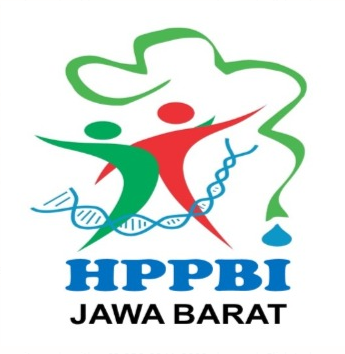Journal Policy
Journal Policy
Copyright and License
1. License
Non-commercial usage of article will be regulated by license Atribusi Creative Commons that is shown in Lisensi Internasional Creative Commons Attribution-NonCommercial-ShareAlike 4.0.
2. Guarantee
Author guarantee the originality, written by listed authors, unpublished previously, no breaking the law, no violate the rights of others, obey the copyright exclusively, and free from the third party. Besides that, written permission (if needed) for citing other article has already on author side.
3. User Rights
Journal Of Biology Education Research (JBER) can publish and circulate the article free of charge. Under License Creative Commons, JBER give permit user to copy, distribute, cite, show, and do other work for non-commercial purpose only. User also need to attribute author and JBER in the other publication media.
4. Author Rights
Author can uphold all rights upon published article. They are:
-
Copyright and the other right of ownership that correlated to article like patent,
-
Using the own substance article for another own article in the future including study and book,
-
Reproducing own article for self purpose,
-
Archieving own article,
-
Setting additional contract that separate for non-exclusive distribution from published article (for example: posting to instititional website or publishing it into a book), with the earlier publication recognition of this article (JBER).
5. Authorship
If an article is co-prepared by more than one author, each author submitting a manuscript warrants that he or she has been authorized by all co-authors to agree to the copyright and license notice (agreement) on their behalf, and agrees to notify his co-authors of the terms of this policy. JBER will not be held liable for anything that may arise due to the author's internal dispute. JBER will only communicate with appropriate authors.
6. Royalty
JBER will be being an openly accessible journal and distributing articles for free under the terms of the mentioned Creative Commons license, the authors acknowledge that the JBER grants rights to its authors without royalties or other fees.
Peer review process
The publication of an article in the JBER relies solely on scientific validity and coherence assessed by our editors and/or peer reviewers, who will also assess whether the writing is understandable and whether the work represents a useful contribution to the field. JBER acknowledges the efforts and suggestions made by the reviewers.
Initial evaluation of the script
The editor will evaluate all submitted manuscripts first. Although rare, it is quite possible that an extraordinary manuscript could be received at this stage. Those rejected at this stage are not sufficiently original, have serious scientific deficiencies, or fall outside the aims and scope of JBER. Those who meet the minimum criteria are forwarded to experts for review.
Type of peer review
Submitted manuscripts will generally be reviewed by two or more experts who will be asked to evaluate whether the manuscript makes scientific sense, whether it is a duplicate of an already published work, and whether the manuscript is clear enough to be published or not. The method used is blind peer review.
Review report
Reviewers are asked to evaluate whether the manuscript:
• Be original by clearly stating the purpose and gap
• Is it methodologically reasonable
• Follow appropriate ethical guidelines
• Have clearly presented results/findings and support conclusions
• Correct references to relevant previous work
• Reviewers are not expected to proofread or copyedit manuscripts. Language correction is not part of the peer review process.
Decision
The reviewer advises the editor, who is responsible for the final decision to accept or reject the article. The Editors will make decisions based on this report and, if necessary, they will consult with members of the Editorial Board. The editor's decision is final.
Becoming reviewer
If you are not currently a reviewer for JBER but would like to be added to the list of reviewers, please contact us. The benefits of reviewing JBER include the opportunity to view and evaluate the latest work in related research fields at an early stage, and to be recognized on our list of reviewers. You may also be able to cite your work for JBER as part of your professional development requirements. JBER reviewers are volunteers who contribute their expertise to science, so there is no financial payment.
Open Access Statement
This journal provides direct open access to its content on the principle that making research freely available to the public supports a greater global exchange of knowledge.
The benefits of open access for authors include:
• Free access for all users worldwide
• Authors own the copyright to their work
• Increased visibility and readership
• Quick publication
• No spatial constraints
Works/articles in this journal are bound by a Creative Commons Attribution-NonCommercial-ShareAlike 4.0 International License.
Article Fee
Article is free of charge incurred for article processing, submission, review, or publishing of articles.
The aim of this Journal is to promote research about education, environment education, biology, and applied biology at no cost to the author, without subscription or membership fees, and without hidden fees, on a regular basis without compromising the ethics, standards, and prerequisites of scientific publication.
Policy
Plagiarism screening will be carried out by the editors of the Journal Of Biology Education Research (JBER) using similarity software (Turnitin). Manuscripts must have a similarity index of less than 30%. We will return the manuscript to the author if the similarity index is more than 30%. Authors may rewrite manuscripts to meet our requirements in this regard and resubmit manuscripts that have been rewritten. Manuscripts that are resubmitted will go into a new screening process, and if for any reason the similarity index is still above 30%, the editor will reject the manuscript.









